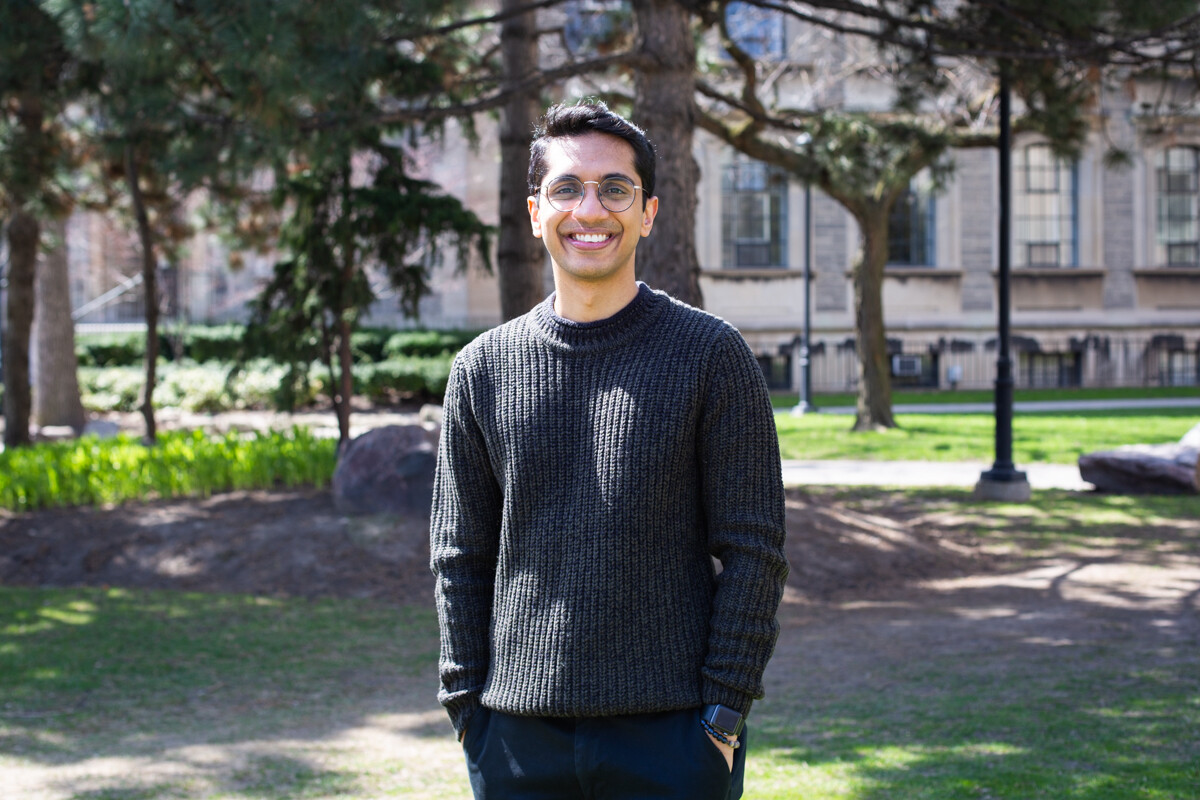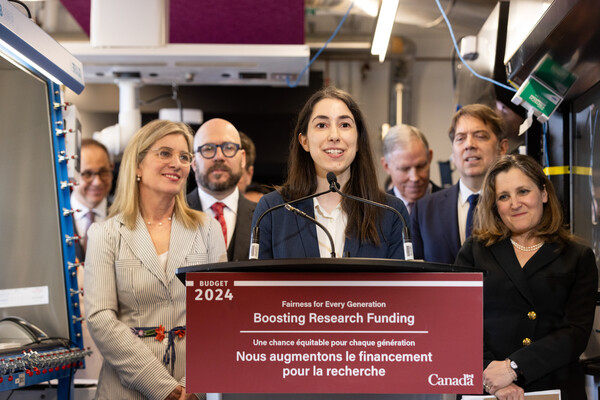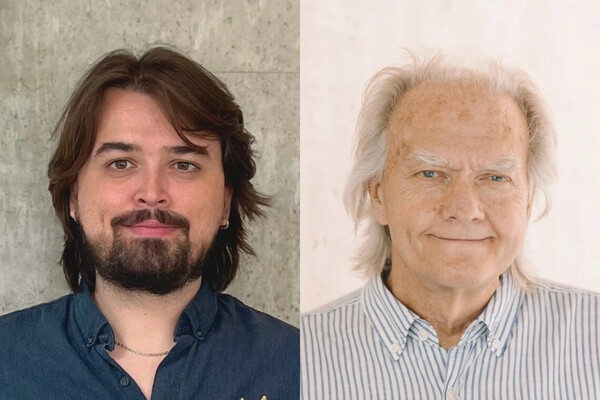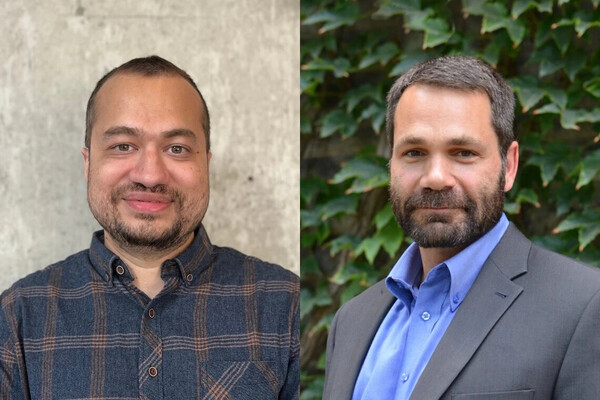Main Second Level Navigation
Breadcrumbs
- Home
- News & Events
- Recent News
- Faces of Temerty Medicine: Vinyas Harish
Faces of Temerty Medicine: Vinyas Harish

Through his studies, Vinyas Harish works at the intersection of emergency preparedness, artificial intelligence and infectious disease.
The MD/PhD program student at the Temerty Faculty of Medicine was recently named a UTAA Graduate Scholar by the University of Toronto Alumni Association, as part of the 2022 Awards of Excellence — a prestigious program that celebrates outstanding learners, librarians, staff and faculty.
Harish recently spoke with writer Erin Howe.
Tell me about your research.
My thesis work focuses on how health systems can use technology to better respond to emergencies.
One part of my research is a qualitative study that involved talking to people in hospitals, public health, and technology companies to understand the role of public-private partnerships, and how they can be more effective in a crisis. As we’ve seen over the last couple years, problems like a pandemic require a multi-sector approach.
In addition to looking at emergency preparedness through the lens of pandemics and infectious diseases, this work is relevant to other crises like climate change and natural disasters. And as the world further embraces digital technology, I’m also interested in how health systems can better prepare for cyber security threats like hacking and ransomware, which have already been used against hospitals.
The idea is to lay the foundations to help equip health systems to be ready to handle emergencies of all kinds.
One of my mentors, Kamran Khan, a professor in the department of medicine who specializes in infectious diseases, helped spark my interest in this space. He and Laura Rosella, a professor of laboratory medicine and pathobiology, are my co-supervisors on this work.
Another facet of your research involves looking at how different groups of people were able to respond to stay-at-home orders. Can you tell me about this?
Through the pandemic, health systems around the world have used digital traces like mobility data from cell phones, to understand how populations respond to interventions like stay-at-home orders. Although there’s been some research in this area done here in Canada, there are a lot more questions to explore.
Many people have studied the first three months of the pandemic and we know cellphone data shows that people from affluent communities showed reduced mobility, but there was no reduction from people from marginalized communities who were more likely to be essential workers.
A lot has changed since those first three months and I’m curious what this data source can tell us about the extent to which Canadian communities have experienced healthy recoveries, like how park use has changed over time.
I understand you're also interested in artificial intelligence.
Artificial intelligence, and specifically machine learning, hold a lot of promise in medicine. One example is Professor Rosella’s collaboration with Layer 6 AI to develop machine learning models to guide population health management strategies in areas like diabetes.
In response to COVID-19, there were questions about how to allocate vaccination doses when supplies were limited. One approach is to prioritize groups like health and essential workers or elderly and immunocompromised people.
Another way is to create a predictive model to assess a person’s individual risk of outcomes like being admitted for intensive care or death, and use that information to determine their eligibility for vaccination.
A challenge we saw during the pandemic is that the landscape changed over time as vaccines became available and new variants emerged. But we don’t know how those changes affect machine learning models.
One hypothesis is the models might become less effective over time, but we don’t know by how much. So, I want to look at COVID as a case study and examine whether and how much the models degrade over time and find ways to prevent similar problems in the future.
What inspired you to explore the combination of clinical medicine, AI and emergency preparedness?
I had the good fortune to be in the right place at the right time.
I did my undergraduate degree in computer science as machine learning was becoming part of our daily lives through things like Apple’s digital personal assistant, Siri, and the music streaming service Spotify. I enrolled in the MD/PhD program in 2017 as machine learning was starting to take off in medicine and I wanted to see how we could harness the technology to help patients and the system at large. Ideally, this can lead to better outcomes for people, lower costs and improved patient and health care provider experiences.
During medical school, I worked at Professor Khan’s company, BlueDot, which uses machine learning to track, contextualize and anticipate infectious disease risks. My time at BlueDot taught me the importance of pandemic preparedness, which was reinforced with the emergence of SARS-CoV-2 at the start of my PhD. Unfortunately, these emergencies will only become more common with climate change, so we have to invest in fostering resilient health systems.
In addition to your studies, you’re also learner co-lead at the Temerty Centre for AI Research and Education in Medicine (T-CAIREM). What do you do in this role?
I work closely with Felipe Morgado, a fellow MD/PhD student, and Professor Rosella to build educational offerings that will equip trainees to leverage AI for biomedical research, patient care, and to enhance our health systems.
There’s an immense breadth of discovery and innovation underway at Temerty Medicine, from research at the cellular level to members of our community who participate in global bodies like the World Health Organization — so really from the micro to the macro — and we wanted to embrace that diversity throughout all these offerings.
So far, we’ve launched an invitational speaker series that features world leading experts in AI, competitive trainee rounds to showcase the talented students working in this area, and a summer studentship for undergraduates and medical students across Canada. And there’s a lot more coming down the pipeline over the next few months, so stay tuned!
I’m passionate about the work we do at T-CAIREM because I get to create the opportunities that I wish I’d had when I entered the field. I can’t wait to see where our trainees go in the years to come!
What drew you to the MD/PhD Program?
Temerty Medicine’s MD/PhD program was my dream postgraduate program.
It’s the largest program of its kind in Canada and that gives it a unique and strong sense of community. Eight years of schooling is a long time and I wanted to be in an environment where I knew I would be supported every step of the way.
The timing also worked out perfectly in terms of my research interests. Between the network of research-intensive hospitals and the launch of groups like the Vector Institute, I knew Toronto was the best place to “get in on the ground floor” and start to have an impact during my MD/PhD training.
Finally, and most importantly, I grew up in Toronto, so the opportunity to learn how to take care of and promote the ultimate wellbeing of the communities that raised me has been a gift.
News


